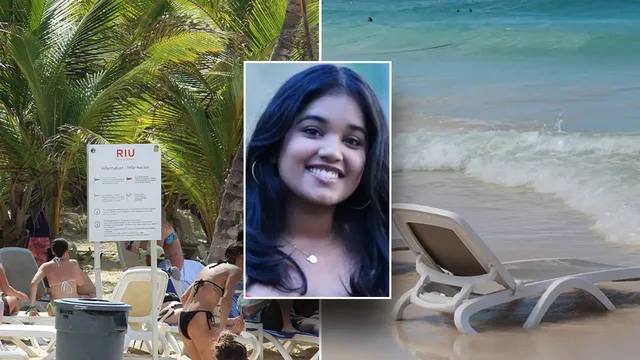
Student goes missing after swimming incident at Dominican resort
2025-03-18 14:03- Sudiksha Konanki went missing from a Dominican Republic beach on March 6.
- Joshua Riibe, the last person seen with her, stated they were swept by a wave and he lost sight of her.
- The investigation is ongoing and raises questions about resort liability and safety measures.
Express your sentiment!
Insights
In the Dominican Republic, Sudiksha Konanki, a 20-year-old student at the University of Pittsburgh, went missing on March 6, while vacationing with friends. She was last seen at 4:15 a.m. at the beach behind the RIU Republica resort, where she had been drinking with her friends. Joshua Riibe, a 22-year-old from Iowa, was the last known person to be with her before she disappeared. According to Riibe, after they were struck by a large wave while swimming, he reportedly last saw her walking back toward their belongings. Subsequently, he fell asleep on a beach bed and when he woke up, she was gone. Her friends reported her missing at 4 p.m., highlighting a significant lapse in time since her last sighting. The investigation into her disappearance has resulted in a thorough search of the waters by authorities, employing hundreds of personnel and various search technologies. Dominican prosecutors are treating the case as a potential drowning, although they are also considering whether there may have been foul play. Riibe has been questioned extensively, with authorities confiscating his passport amidst his cooperation and his parents' claims that he has faced irregular treatment. His accounts have raised questions, especially with multiple versions being presented, although his family insists on his involvement in the search for Konanki. The circumstances surrounding the case reflect broader issues, including potential liability for the resort due to concerns around safety on the beach and the nature of the swimming conditions that night. Lawyers and legal experts are considering whether the resort could be held responsible, especially if negligence in safety protocols is proven. As the investigation continues, authorities push for more information about Konanki’s disappearance, yet the timeline of events paints a troubling picture of an unfortunate accident amid questionable safety measures. As public interest remains high and media coverage escalates, the case exemplifies the complexities of vacation safety while highlighting the need for thorough investigations into missing persons cases abroad. The implications for resort policies in dealing with guests' safety are currently under scrutiny, as families of those missing often seek justice and answers in tragic situations like this one.
Contexts
Resorts in the Dominican Republic have made considerable efforts to ensure the safety and well-being of their guests. These measures encompass various aspects ranging from health protocols to security measures designed to provide a safe and pleasurable environment for all visitors. With an influx of international travelers, especially from North America and Europe, these resorts have implemented rigorous safety protocols aligned with both local and international standards to tackle potential health risks and enhance the overall guest experience. One of the primary safety measures in place is the adherence to strict health protocols, particularly in light of the global pandemic. Resorts actively implement enhanced sanitation practices, including regular disinfecting of common areas, guest rooms, and high-touch surfaces. Additionally, many resorts have adopted contactless check-in and check-out procedures to minimize physical interactions. Guests often find hand sanitizing stations readily available throughout the property, along with health screenings upon arrival, which may include temperature checks to ensure the safety of all guests and staff while on the premises. In terms of personal safety, resorts employ comprehensive security measures to protect guests from potential harm. This includes the presence of trained security personnel on-site who are vigilant about guest safety, particularly in public areas. Many resorts have also invested in surveillance cameras and controlled access to certain areas to deter any criminal activity. Furthermore, resorts often provide safety information for guests regarding local laws, emergency contacts, and procedures in the event of an emergency, ensuring that guests are well-informed and prepared during their stay. Moreover, resorts have educational programs and guidelines designed to inform guests about local customs, safe travel practices, and, should any situations arise, how to report incidents or concerns. An emphasis on staff training ensures that employees are not only equipped to handle emergencies but are also able to assist guests in understanding the safety processes in place. Through these combined efforts, Dominican Republic resorts strive to create a hospitable atmosphere where guests can relax and enjoy their vacation with peace of mind.